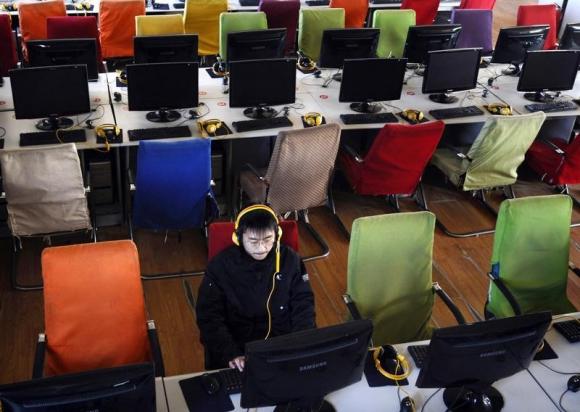While Chinese authorities have long maintained strict control of the internet and done much to guide online public opinion, those efforts have increased substantially in recent years. In 2014, authorities launched the Cyberspace Administration of China, a central internet policy and oversight agency, and its first director Lu Wei did much to further the crackdown on internet speech and promote China’s concept of “internet sovereignty” to the world. Following the recent and unexpected departure of Lu as director of the CAC, the Committee to Protect Journalists summarizes his work tightening information controls from the helm of the central internet censorship agency. The post also introduces Lu’s successor, Xu Lin, and quotes CDT founder Xiao Qiang, who anticipates the CAC’s continued regulation of free online speech under its new director:
The new director of the administration, Xu Lin, was Lu’s deputy, and previously ran the propaganda department of Shanghai. He worked directly under President Xi when Xi was the Shanghai party secretary in 2007, and the two are believed to be close.
While visiting Beijing on July 7, U.N. Secretary General Ban Ki-moon told Chinese leaders in a press conference that a free media was one of the keys to China’s future development, a view strongly held at CPJ. He said that a free and independent media helped to assure accountability, thereby improving the government’s image in the eyes of its people. Chinese leaders seem to believe that China can succeed in the information age while severely restricting the free flow of information, a dubious proposition at best.
Xiao expects the crackdown on free expression in China to intensify in the months ahead, while warning that “government censorship has become very unpopular.” It’s a battle that promises to play out over a long period of time. [Source]
In the two weeks since Lu’s departure was announced, the CAC has indeed continued increasing control over online speech. They last week issued a statement forbidding news websites from using unverified sources obtained via social media, the latest of several recent measures to reinforce media control and combat “false information.” Last weekend, a leaked CAC directive ordered increased oversight of user comments on news posts. Two other information control agencies, the Central Propaganda Department and the State Administration of Press, Publication, Radio, Film and Television, were scolded last month for their inefficiency in realizing Xi Jinping’s vision of media control.
Lu Wei was recently referred to as “the man who nailed Jello to the wall,” a nod to Bill Clinton’s confident statement decades ago on the supposed futility of Beijing’s attempts to control the internet. At The Washington Post, Simon Denyer looks at how Chinese authorities have toppled the theory, once widely-held, that as internet penetration rates grow globally, the development of liberal democracy and free speech would follow.
Guobin Yang, an associate professor at the University of Pennsylvania and author of many books on China’s Internet, says the online environment has “really changed” in recent years.
“Critical voices are still there, but it is less likely they will coalesce into a broader form of online protest,” he said.
[…] Indeed, social media is increasingly being harnessed by autocratic regimes to bolster their rule, says University of Toronto political scientist Seva Gunitsky. It helps dictatorships gauge public opinion and discover otherwise hidden grievances, while also allowing them to disseminate propaganda and shape the contours of public debate.
“China has been at the forefront of this, and they are quickly getting very sophisticated about it,” he said. “Social media can allow autocrats to become stronger, more informed and more adaptable. As with radio and television before it, social media is not just a way to spread information but a potential tool of subtle control and manipulation — one that often works more effectively than brute-force suppression.”
[…] In a refinement of traditional Communist Party propaganda, the core of the attempt to tame social media since 2008 has been to “channel” public opinion into narratives that suit the party and divert attention away from controversy, says David Bandurski at the University of Hong Kong’s China Media Project. […] [Source]
Denyer’s article is the latest in a series on internet control in China at The Washington Post.








